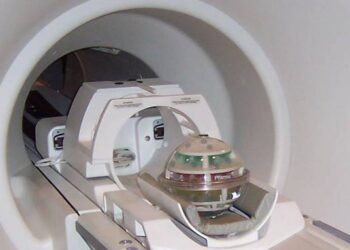Ultra-processed foods linked to increased risk of type 2 diabetes
1. In this prospective cohort study from France, consumption of ultra-processed foods (UPF) was linked to an increased risk of type 2 diabetes (T2D).
2. The association between UPF and T2D remained significant after accounting for other metabolic comorbidities and weight change.
Evidence Rating Level: 2 (Good)
Study Rundown: Dietary content has a profound influence on the development of many medical conditions including metabolic disorders, cardiovascular disease, and malignancies. The increased dietary intake of ultra-processed foods (UPF) has been previously linked to an increased risk of all-cause mortality, cancer, dyslipidemia, obesity, and hypertension. The current study sought to evaluate the risk of T2D associated with consumption of UPF in a large, modern prospective cohort. The study found that increased intake of UPF, by both total intake per day and percentage of total diet, was linked to an increased risk of T2D. The association was significant even after adjusting for metabolic comorbidities and weight change.
The current study highlights another potential harm associated with a diet high in UPF. The exact components and processing steps un UFP that may explain this association are not known. The strength of the study is the large, modern prospective cohort with repeated dietary intake data available for each study participant. The main limitations of the study include the potential for under diagnosis of T2D in the general population, the large variety of UPF, and the inability to evaluate causal relationships between specific UPF products and components.
Click to read the study in JAMA Internal Medicine
In-Depth [prospective cohort]: This study is a prospective cohort study using data from the NutriNet-Santé study cohort, an ongoing web-based population from France that launched in 2009. Participants were included if they were 18-years or older, and completed 3 nonconsecutive web-based 24hr dietary records at baseline and every six months. Health questionnaires were filled out every three months and T2D was either self-reported or inferred from medication use. Participants were excluded if they had not completed follow-up surveys. Food processing degree was categorized based on the NOVA classification.
A total of 104 707 participants with a median (SD) baseline age of 42.7 (14.5) years were included in this study. The risk of T2D was 166 per 100,000 patient years in the greatest consumers of UPF foods compared to 113 per 100,000 patient years in the lowest consumers. Risk of T2D was increased with increasing UPF consumption (hazard ratio [HR] per 10 percentage point increment in dietary intake of 1.15 (95%CI, 1.06-1.25). This associated risk remained significant after adjusting for metabolic comorbidities (HR, 1.13; 95%CI, 1.03-1.23), and weight change (HR, 1.13; 95%CI, 1.01-1.27).
Image: PD
©2019 2 Minute Medicine, Inc. All rights reserved. No works may be reproduced without expressed written consent from 2 Minute Medicine, Inc. Inquire about licensing here. No article should be construed as medical advice and is not intended as such by the authors or by 2 Minute Medicine, Inc.









